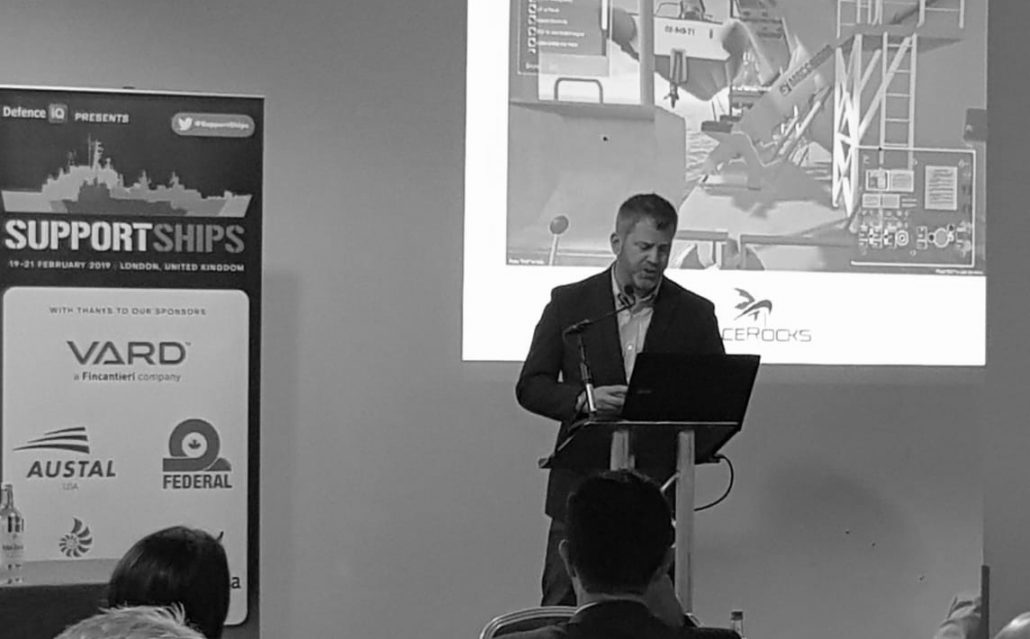Canada attends Naval Support Ships conference; Federal Fleet Services presents to global navies
This week, Federal Fleet Services sponsored the international Naval Support Ships conference in London, UK.
Spencer Fraser, CEO of Federal Fleet Services was provided the chance to brief world navies on the success of Canada’s Resolve-Class Naval Support Ship Asterix.
There were several points made by global navies during the conference this week which should provide some serious food-for-thought for Canadian shipbuilding and naval operations:
- All current European replenishment ship construction programs at well-established military shipyards are estimating a minimum of 5-year construction times. Davie’s achievement in delivering Asterix within just two-years was met with great applause.
- The operational role of replenishment ships and their limitation in combat was actively discussed and agreed upon. Major global navies accept that replenishment ships are not front-line fighting ships and should not be put into harm’s way. They are Mission Essential Units (MEUs) or High Value Units (HVUs) and need to be protected. As such, there is a great potential for cost-savings by sticking with civilian construction standards and reducing the amount of defensive systems on board to those for force protection. . For example, the US Navy’s Military Sealift Command no longer consider there to be a need for close-in weapons systems onboard replenishment ships. Similarly, the Berlin-Class (same design as Canada’s Joint Support Ship) was described by its operator as ‘not a warship’ and, obviously, would not be taken into a combat situation.
- A massive focus on the role of replenishment ships, such as Asterix, in Humanitarian Assistance and Disaster Relief and the need to fit such vessels with the required systems.
- Outsourcing the management of and using civilian crews in the operation of naval support ships is increasing and it is recognized as an efficient and cost-effective model. Much debate over the merits of Government-Owned, Contractor-Operated (GOCO) ships versus Contractor-Owned, Contract-Operated (COCO) ships (such as Asterix) and vice-versa.
- Being in London, there was much enthusiasm for the UK’s new National Shipbuilding Strategy. The UK’s new shipbuilding strategy was introduced to solve the kind of problems which are now plaguing Canada’s shipbuilding programs. Key to the UK’s new strategy are:
- To compete all shipbuilding programs (thereby avoiding the creation of monopolies which results in poor value for taxpayers)
- To ensure that all future shipbuilding projects adopt a distributed block assembly method whereby shipyards across the country are tasked to build sections of ships and thereby reduce ship delivery times and overall shipbuilding costs
- Ensure that ships being built for the UK are an exportable design and can be produced at a price-point which is internationally competitive
- Building ships to a fixed price contract rather than the cost-plus model being used in Canada which incentivizes overspend
Overall it was a great conference and Federal Fleet Services was proud, alongside other world-class Canadian contractors, to represent Canada among the world’s naval powers.



